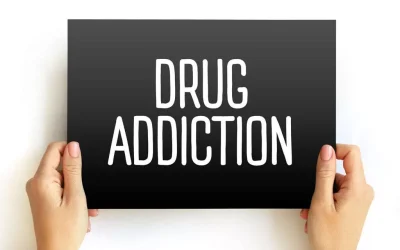Mood and anxiety disorders and drug use co-occur at rates as high as 50 percent, NIDA publishes. Many people fear the term addiction and believe it is an indication of failure or worthlessness. People with addictions often carry stigma about their behavior, leading to shame and fear of seeking help. The world is changing, and you may find that getting help for your addiction is the best thing you ever do for yourself. In the meantime, we hope that educating yourself will help on your journey to wellness.
Effects of standard rodent diets on gut microbiome diversity
Today, addiction and dependence are used interchangeably, and both refer to an unhealthy and problematic pattern of substance use. If someone with a drug dependence detoxes, especially by slowly decreasing the amount of the medication they take over a period of time, they may suffer withdrawal symptoms, but can end that physical dependence. Herbert D. Kleber, M.D., will lead off with a discussion of the nature of addiction, developments in the treatment field, and reasons the public lacks faith in treatment as a method of combating substance abuse. He is executive vice president and medical director of the Center on Addiction and Substance Abuse at Columbia University. He is also professor of psychiatry at the Columbia University College of Physicians and Surgeons and the New York State Psychiatric Institute and heads a new division on substance abuse within the psychiatry department.
Does tolerance lead to dependence?
Addiction occurs when people continue to compulsively use a drug despite harmful consequences. There is still much debate about whether many behavioral addictions are “true” addictions. https://ecosoberhouse.com/ While shopping addiction, sex addiction, and exercise addiction are often noted as behavioral addictions, the DSM-5 does not officially recognize these as distinct disorders.

Sequence analysis
The intersection of childhood trauma and addiction – American Counseling Association
The intersection of childhood trauma and addiction.
Posted: Sat, 02 Mar 2024 14:04:54 GMT [source]
Dependence on a drug can certainly lead to a substance abuse disorder (SUD). According to the latest Diagnostic and Statistical Manual of Mental Disorders (DSM-5), there’s not really a distinction between dependence and abuse anymore. Rather, the manual defines substance abuse disorders as mild, moderate, or severe. We know that the difference between addiction and dependence is often challenging to understand.

When someone is dependent, their body adapts to a drug and requires more of it to achieve the same effect. No longer taking that drug produces symptoms, including withdrawal syndrome. While drug addiction affects the reward pathways of the brain (including the mesolimbic pathway and the mesocortical pathway), dependence affects the addiction vs dependence thalamus and brainstem. This meeting of the forum will examine the nature of substance abuse and its impact on the nation. For example, we have long been told that people need to hit “rock bottom” before they’ll get help, but this isn’t true. Anyone with an addiction can get help at any point if they feel it’s the right time.
- Mood and anxiety disorders and drug use co-occur at rates as high as 50 percent, NIDA publishes.
- Drugs change the brain in ways that make quitting hard, even for those who want to.
- If you can’t function properly in the morning without your cup of coffee, it could be that you are caffeine-dependent.
- And anyone can become addicted, from people experiencing homelessness to business executives.
- Some nuances can make it difficult to determine if someone is addicted or dependent on a substance.
- Someone who’s dependent on a substance may or may not be addicted to it, but someone who’s addicted to a drug has always become dependent on it.
Risk factors for addiction and dependence
The longer someone takes meth, and the higher the dosage, the more severely dependent on the drug they are likely to be. Withdrawal symptoms are optimally managed through a medical detox regime like that provided in a comprehensive treatment program. There are no specific medications designed to treat meth addiction; however, some medications can be helpful in managing specific symptoms of withdrawal like those that address depression, anxiety, and tremors. Addiction and dependence are words both used to describe an unhealthy and problematic pattern of drug or alcohol use. In the past, drug or alcohol dependence was diagnosed as the most severe form of addiction, but this classification was done away with in 2013.

Because of this confusion, some organizations prefer substance use disorder (SUD). Physical dependence is a natural expected physiological response to drugs such as opioids, benzodiazepines, antidepressants and corticosteroids. It is characterized by withdrawal symptoms with the patient being unable to cope when the drug is stopped. The extent of the impact of substance abuse on U.S. society calls for a review of federal intervention efforts, whether at the level of supply reduction, treatment, or prevention. The purpose of this paper, however, is not to analyze the federal response to substance abuse, but to provide background information for those interested in understanding the scope of the problem.
- If that history lesson sounded confusing, that’s because it is, and there’s no way to simplify what happened.
- While it isn’t possible to develop an addiction to a substance without repeated use, addictions can form more quickly and easily in certain people.
- As with most other chronic diseases, such as diabetes, asthma, or heart disease, treatment for drug addiction generally isn’t a cure.
If that substance dependence has a negative impact on your life, you could be at risk of addiction. Amidst the worsening polysubstance overdose crisis driven by illicitly-manufactured fentanyl, accurately identifying opioid use disorder is crucial to target effective treatment and harm reduction efforts. Frequently, payers, health care providers, and even epidemiologists utilize claims data based on diagnosis code data to guide policy and treatment. However, a recent study [1] raises significant concerns about the accuracy of these diagnostic data. The problem, we argue, is caused by confusingly-worded International Classification of Diseases (ICD)-9 and ICD-10 codes, which reflect a general misunderstanding of the difference between addiction and physiologic dependence.
